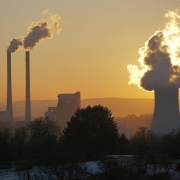ESWET’s Reaction to the Proposed Inclusion of Waste-to-Energy in the EU ETS
As the report proposes the inclusion of Waste-to-Energy in the EU ETS in 2028, ESWET assesses positively the measures introduced to support it.
ESWET welcomes the ENVI Committee draft report on the revision of the EU ETS provided that any inclusion of the Waste-to-Energy sector in the ETS is supported by concrete measures to avoid disruption of the waste management chain.
ESWET supports the report’s call for:
- An impact assessment to be carried out by the Commission, along with supplementary legislation to prevent increased landfilling and waste exports, as essential conditions to avoid disruption of the waste treatment framework.
- Increased support in carbon capture technologies, which will allow Waste-to-Energy become carbon neutral and even carbon negative. To this aim, we expect that the access to the Innovation Fund will be ensured before the inclusion of the sector in the EU ETS.
- A transitional period for the inclusion, which is necessary to ensure that the above prerequisites are in place and the industry will adjust properly.
However, ESWET asks that the future legislative steps will carefully consider the following topics as well:
- Methane emissions should be included in the EU ETS. This is an urgent matter, as methane is a powerful greenhouse gas 84 times more potent than CO2 over a 20-year period and thus requires immediate pricing.
- Offsets of the Waste-to-Energy sector must be taken into consideration: Waste-to-Energy plants already save CO2 emissions by diverting non-recyclable waste from landfills, producing energy and fuels, and recovering secondary raw materials.
“We are happy to see that the report has heard our main arguments, proposing measures to safeguard a level-playing field between the waste treatment options” said Patrick Clerens, ESWET Secretary-General. “Now, it is important to focus on methane emissions and to empower the polluter-pays principle to minimise waste generation and its impacts on the environment and human health”.
Source: ESWET (Brussels, 24 January, 2022)








